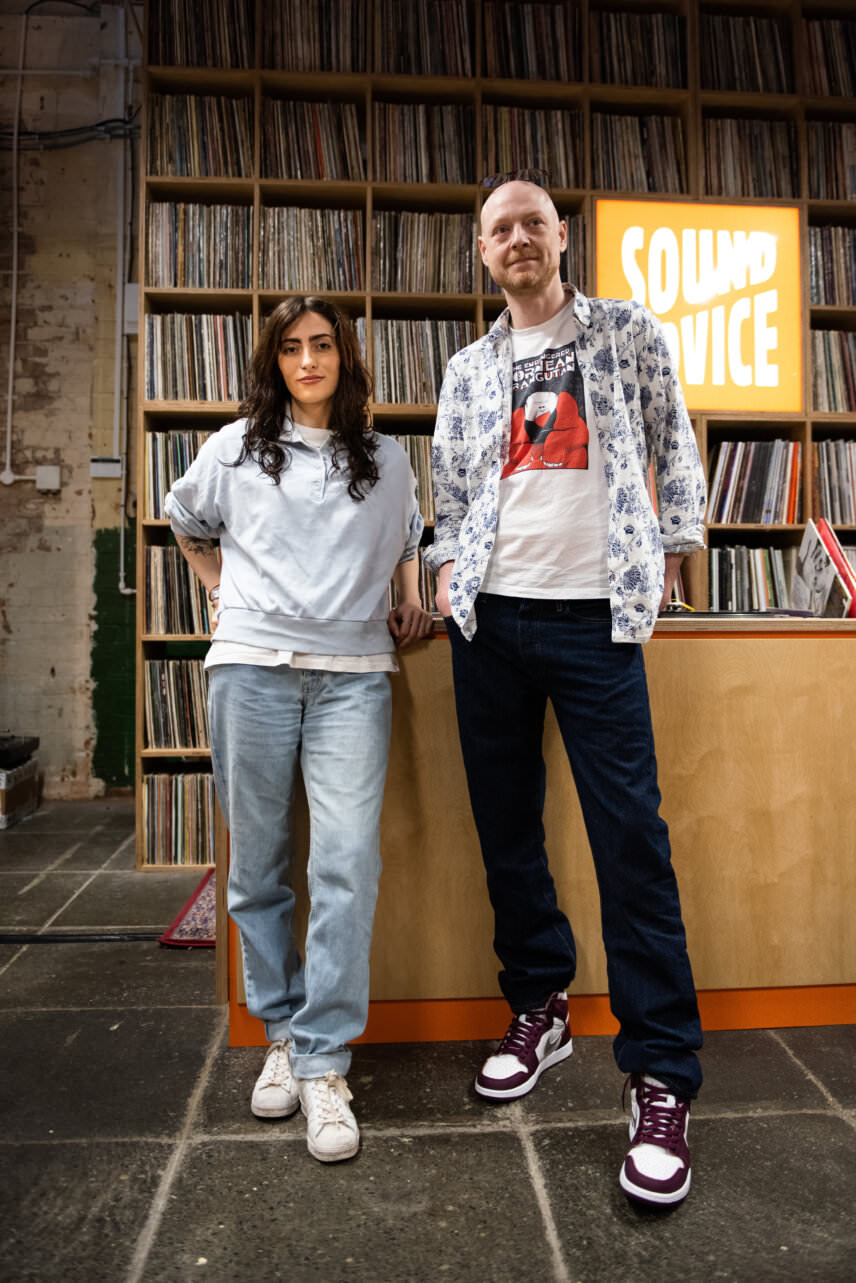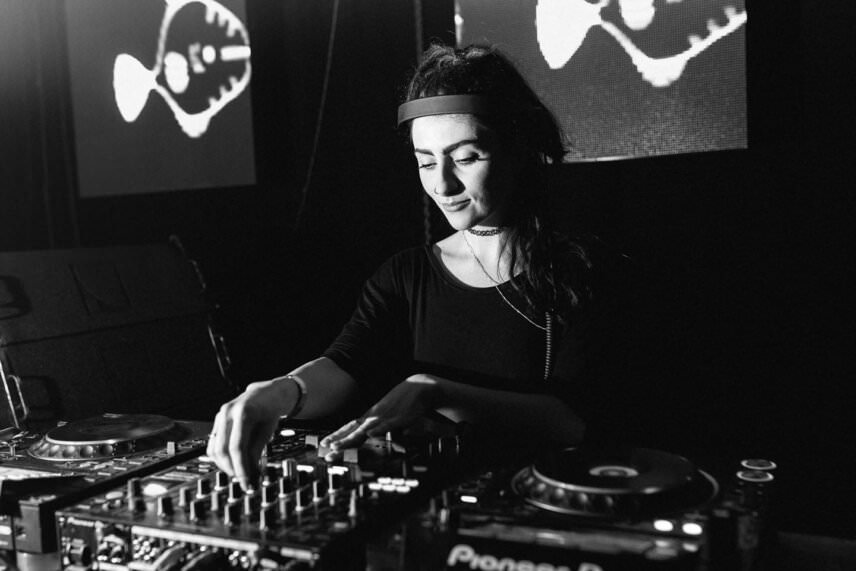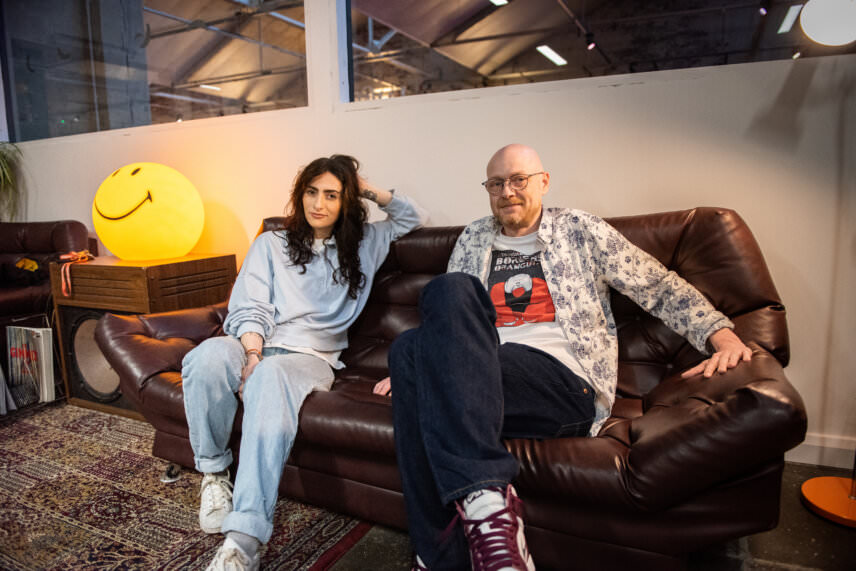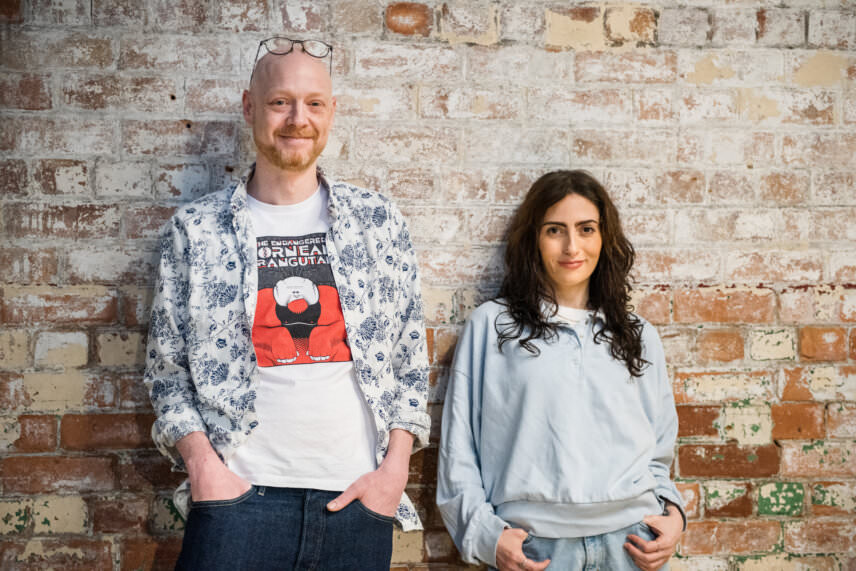For February’s feature interview, we spoke to DJ Holly Lester and Boyd Sleator. The duo run ‘Free The Night,’ a Northern Ireland campaigning organisation, leading the way in dance music activism.
A combination of lack of infrastructure, the conservative nature of Northern Irish politics and the most restrictive licensing laws in Europe mean that Northern Ireland’s (NI) DJ culture and clubbing community have been held back from reaching their full potential.
The non-profit organisation Free The Night aim to change that, through a carefully thought-out strategy of lobbying and advocacy. We spoke with co-founders DJ Holly Lester and Boyd Sleator about how dance music can organise to change the status quo, and about their inclusive and effective model of dance music activism.

Who are Holly Lester and Boyd Sleator?
Boyd Sleator: Co-founder Boyd is a self-described “old raver”, who for the last seven years has worked professionally campaigning for social change. In addition to his work with Free The Night, he’s also a Development Officer for the human rights charity Humanists UK.
Holly Lester: DJ, runs her Duality Trax label, has been DJing since she was 14, for “basically half my life”. Holly also works in radio and dabbles in music production, as well as her lobbying and advocacy work for Free The Night.
Attack: Free The Night is “committed to creating a safe, progressive and rich nightlife environment for NI” – does this mean that NI doesn’t currently have a safe, progressive and rich nightlife environment?
Boyd: That would be true to some extent. It could be much much better. NI has a rich tapestry of culture and arts, some very divisive as I’m sure you’re aware! But we have an amazing music scene with amazing artists and talent. The problem is that the support structure and infrastructure for our culture to exist is becoming weaker and weaker.
And we have a highly conservative government in place too. You know, we make jokes in Ireland about locking up the swings on a Sunday, but that used to happen, they used to lock play parks up on Sunday afternoons and we still have a very conservative country in terms of our legislation!
That doesn’t mean that the people are conservative – NI, I would argue, is becoming one of the most progressive parts of the United Kingdom – but as it stands, our legislation doesn’t reflect that. So we have closing times for music and pubs at 3 am, that’s the latest they’ll be able to stay open to. During the recent government licensing review, they actually discussed reducing this to 2 am.
But these are our cultural rights – dance floors – those places are where we have fellowship and community. And we really need to think about how this can be progressed in terms of equity and equality.
So the licensing laws in NI are different from the rest of the UK?
Boyd: Yes, we have totally different licensing laws in NI. It’s a 2 am finish for serving alcohol and at 3 am the venue closes. To stay open till 5 am you have to stop serving alcohol at 11 so it just doesn’t happen. Twenty-five years ago we used to be able to find venues that went to 6 in the morning, that were ‘sort of legal’! But now the scene’s very different in terms of its professionalism.
Now, a lot of the promoters in Northern Ireland put on these amazing nights in an incredibly professional way even though there is very little support or monetary gain for them. And, even though events have become more inclusive, safer and better organised with incredible local and international talent playing here, the outlook on the scene is still the same from the eyes of the government as it was 25 years ago.
This is about our cultural right to freedom of expression which takes place on dance floors within the nighttime economy and this should be protected like any other cultural right in NI
Boyd Sleator
Tell us a bit more about the transport issue in NI.
Holly: By 11 pm, pretty much all public transport stops running in many areas throughout NI, there aren’t even direct routes to the airports. It’s very difficult for people to come into our cities from more rural areas, which is where I’m from originally. Tackling the public transport issue wasn’t one of our initial aims, but it has become one since being raised frequently to us through our online discussions and various other meetings.
And so obviously these infrastructure issues affect DJ and club culture…
Holly: Absolutely. For me personally for example, I lived in a rural town just outside of Armagh and I would have struggled to get to the city where most of the nightlife and bigger events would have been happening.
I actually had to move away, like most people do here in order to try and further their career. There’s a real issue with the ‘creative drain’ here because of transport issues affecting people’s career opportunities, and then also due to a general lack of infrastructure for these creatives.
Then you have all the political issues that are unique to Northern Ireland and a historically backward attitude from the government. We want to change that, try and create an infrastructure that allows artists and creatives to stay here and not feel like they have to move away.

I’ve been home now for about 3 years and I’m reasonably established in my career now but I still wonder all the time, do I need to move to Berlin or London? I want to be able to stay in this country and have a successful career and not have to think I’m in the wrong place or that I need to leave in order to be successful.
So how is Free The Night tackling all these issues?
Holly: Mainly through lobbying and advocacy work which is what Boyd has been doing for the last six years professionally; he guides us in that sense. Boyd is the reason we have the knowledge and means to move forward and tackle the government professionally. The other large part of our work is gathering research relevant to the nighttime economy in NI, as there is very little data on this area so far. We are working with a fantastic PhD researcher from Queens University called Ciara Power to help change this.
For example, we just recently carried out a public call to action, asking the government to support artists with the last lockdown – that’s just a small example of the kind of work we’re going to be undertaking. Obviously, we’re hoping that’s the last Covid related thing we have to deal with and the rest will be more to do with our overall vision of tackling issues creatives face in the nighttime economy.
There’s another licensing review coming up this year in which we plan to do another call to action and basically ask the government to support further changes in this legislation that might allow entertainment to go on past 3 am.

We haven’t set an exact time but eventually, we’d like to see something like 24hr licensing options in place for some venues. At the moment, we’re just hoping we can get some movement in the next year with this very outdated 3 am cut off time. And we’re going to be tackling other issues like the aforementioned public transport problems.
Venues that are in danger of closing fall within our remit too and we hope in the future to see nightclubs and venues recognised as places of cultural significance. That might be a while off but we really want to aim high with this stuff. Anything that’s affecting the scene, that’s where we’re going to jump in because there has been no unified voice for these people so far.
Boyd: Now’s a really good time to do it. NI has gone through a couple of massive progressive changes – we’ve had law changes on women’s reproductive rights, same-sex marriage was legalised recently – these changes are huge and I think it should give people encouragement that change can happen if you come together. Look at the LGBTQ communities, they’ve lobbied and advocated well for years and we should take examples from those communities.

Holly: People ask why now for Free The Night and I think as Boyd says, it’s a combination of all the major human rights issues here that have basically been sorted out at this point. It wouldn’t have felt morally right to start tackling these nighttime industry issues without other human rights issues being addressed first. Without those basic needs being met, those other things can’t happen – it’s like Maslow’s Hierarchy of Need, the basic fundamental needs have to be met first.
Boyd: In the past, there’s been no lobbying or advocacy for the nighttime economy here, so it’s going to take a while for us to get politicians to recognise its importance. We’ve lots of work to do engaging politicians and having those political parties take on some of our policies, have motions taken with Belfast city council on nighttime panels and ambassadors, etc.
We’re part of a global initiative with Cities After Dark by Vibelab. We’re really embedding ourselves in with those bodies and I think we’ve cemented ourselves as a leading organisation in dealing with the nighttime economy, at least in NI. We are also lucky to be supported by a passionate team of volunteers who come from a creative background or are involved in the nighttime sector in some way. There are now ten of us in total, including our advisor Sunil Sharpe who runs nightlife advocacy group Give Us The Night in the ROI and was a key figure in guiding us in the early stages.
The more I think about this, the more I’m convinced that this is about our cultural rights; our freedom of expression which takes place on dance floors within the nighttime economy, and this should be protected like any other cultural right in NI.
You can find out more about Free The Night, including information about getting involved here.
